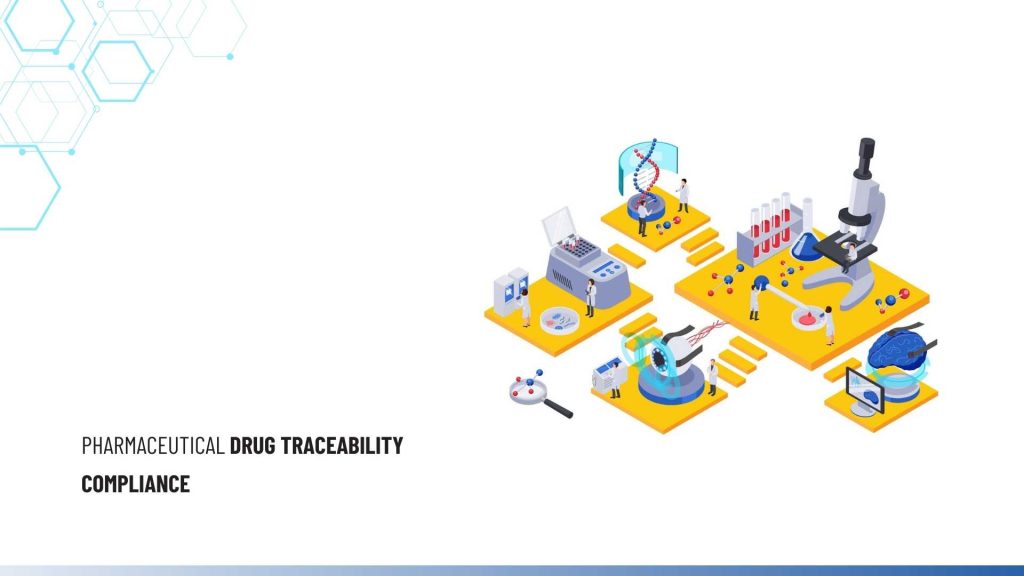Pharmaceutical drug traceability compliance refers to the systematic and comprehensive implementation of measures within the pharmaceutical industry to trace the entire lifecycle of a drug, from its production to distribution and ultimately to the end consumer.
This process involves the use of advanced tracking and identification technologies, such as barcodes and serialization, to create a translucent and liable supply chain. The prior objective is to assure the integrity, safety, and authenticity of pharmaceutical products.
Compliance with traceability regulations is crucial in meeting legal requirements, safeguarding public health, and preventing the infiltration of counterfeit drugs into the market.
By establishing a robust traceability system, stakeholders can effectively monitor the movement of pharmaceuticals, promptly identify and address any issues, and enhance overall product quality and patient safety.
Ultimately, pharmaceutical drug traceability compliance plays a pivotal role in building trust among regulators, manufacturers, and consumers, contributing to the integrity of the pharmaceutical industry as a whole.
challenge in pharma drug traceability
- Counterfeiting: Ensuring traceability to combat the proliferation of counterfeit drugs and protect patient safety.
- Global Supply Chain Complexity: Managing the complexity of pharmaceutical supply chains that often span multiple countries and involve various stakeholders.
- Data Standardization: Achieving uniformity in data formats and standards to facilitate interoperability among diverse systems and stakeholders.
- Integration with Legacy Systems: Integrating modern traceability technologies with existing legacy systems within pharmaceutical companies.
- Regulatory Compliance: Adapting to evolving and stringent regulations governing drug traceability across different regions and countries.
- Data Security: Safeguarding sensitive information within traceability systems to control unauthorized access and defend against data breaches.
- Cost of Implementation: Addressing the financial challenges associated with the implementation of advanced traceability technologies and systems.
- Educating Stakeholders: Ensuring that all stakeholders in the supply chain are well-informed and educated about the importance and operation of traceability systems.
- Real-time Monitoring: Implementing systems that allow for real-time monitoring of drug movements to promptly identify and address any issues in the supply chain.
- Interoperability Challenges: Overcoming interoperability issues between different traceability systems used by various entities in the pharmaceutical ecosystem.
Enhancing drug traceability compliance
Enhancing drug traceability compliance involves the continuous improvement and optimization of systems and processes within the pharmaceutical industry to achieve greater accuracy, transparency, and efficiency in tracking the entire journey of a drug.
This often includes the adoption of advanced technologies such as blockchain, RFID (Radio-Frequency Identification), and sophisticated data management systems. By integrating these tools, pharmaceutical companies can establish a more robust and interconnected traceability framework.
Improvements may also extend to supply chain management, production facilities, and distribution networks, ensuring that every step of the drug’s lifecycle is meticulously monitored and recorded.
Regular audits, training programs, and collaboration with regulatory bodies further contribute to compliance enhancement. The overarching goal is to minimize the risk of counterfeit drugs, ensure the authenticity and safety of pharmaceutical products, and promptly respond to any deviations from established standards.
Enhancing drug traceability compliance not only safeguards public health but also fosters trust among stakeholders, reinforcing the pharmaceutical industry’s commitment to delivering high-quality and secure medications to consumers.
ERP systems and drug serialization
You know ERP plays a essential role in the integration and optimization of various business processes within the pharmaceutical industry, particularly in the context of drug serialization. ERP solutions delivers a centralized platform that enables seamless coordination and communication across different departments, ranging from manufacturing and inventory management to distribution and regulatory compliance.
When it comes to drug serialization, ERP systems facilitate the efficient tracking and tracing of individual drug units through the assignment of unique serial numbers. These systems help pharmaceutical companies comply with regulatory requirements for serialization, ensuring that each product can be recalled and authenticated throughout the supply chain.
By integrating serialization functionality into ERP systems, companies can enhance visibility, reduce the risk of counterfeit drugs, and streamline their operations. This combination of ERP systems and drug serialization not only assures regulatory adherence. But also contributes to the overall efficiency, transparency, and integrity of the pharmaceutical supply chain.
conclusion
Acumatica Cloud ERP offers a concise yet powerful solution to amplify traceability in the pharmaceutical industry. Its cloud-based infrastructure, real-time data accessibility, and adaptability to regulatory changes position it as a crucial tool for overcoming traceability challenges.
With features like serialized inventory tracking, Acumatica empowers pharmaceutical companies to ensure the authenticity of each drug unit, effectively combating counterfeiting. In essence, Acumatica Cloud ERP provides a streamlined and efficient approach to traceability in the pharma sector. Enhancing overall transparency, compliance, and operational effectiveness.

Vijay comes with a vast experience in ERP and enterprise solutions space with about 20 years of experience in various packaged application like Acumatica, SAP, Orion, Salesforce.com, SugarCRM and, SalesLogix.

